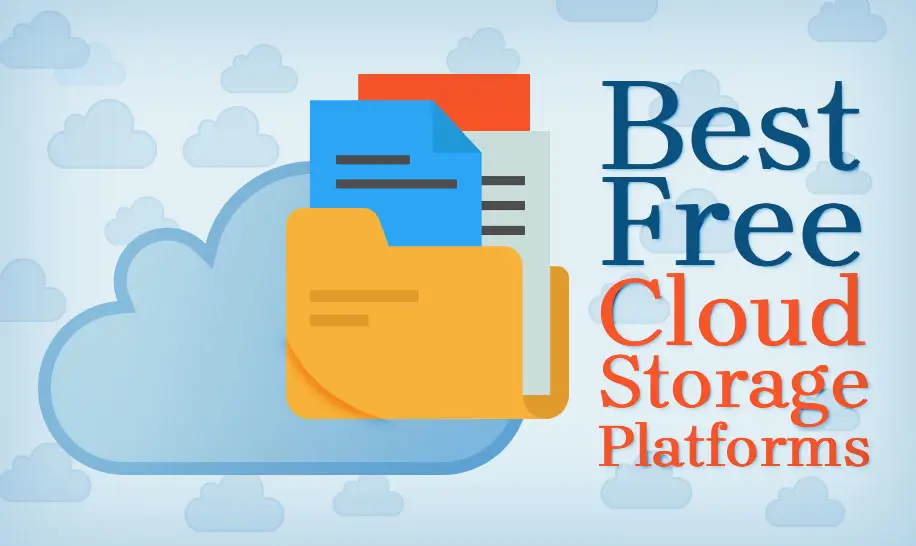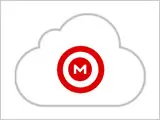
Best Free and Secure Cloud Storage Platforms.
In today's digital world, safeguarding your data is paramount. Whether you're an individual looking to back up precious photos and documents, or a business needing a reliable solution for collaboration and data security, cloud storage has become an essential tool. But with so many options available, finding the right platform – one that balances free storage, robust security, and user-friendliness – can be overwhelming. This guide will explore the top free cloud storage services, focusing on their security features, storage limits, and overall value. We'll help you choose the best solution to protect your valuable files and streamline your digital life. We'll also cover important considerations like data encryption, privacy policies, and two-factor authentication.
Why Choose a Secure Cloud Storage Platform?
The benefits of cloud storage are numerous: accessibility from any device, automatic backups, and simplified file sharing. However, entrusting your data to a third-party provider requires careful consideration. Data breaches are becoming increasingly common, making data security a top priority. Beyond the convenience, a secure cloud storage platform protects you from:
- Data Loss: Hardware failures, accidental deletions, or natural disasters can wipe out your data. Cloud storage provides redundancy and backups.
- Cyber Threats: Malware, ransomware, and hacking attempts can compromise your files. Secure platforms employ encryption and other security measures to mitigate these risks.
- Privacy Violations: Without proper security, your personal and sensitive data could be exposed.
- Compliance Requirements: Certain industries (healthcare, finance) have strict data security regulations. A secure cloud storage platform can help you meet these requirements.
- Peace of Mind: Knowing your data is safe and accessible provides invaluable peace of mind.
A robust cloud storage platform should offer features like:
- Encryption: Both in transit and at rest, ensuring your files are unreadable to unauthorized parties. Look for platforms using AES 256-bit encryption or similar strong standards.
- Two-Factor Authentication (2FA): Adds an extra layer of security, requiring a code from your phone in addition to your password.
- Privacy Policies: Understand how the provider handles your data and whether they share it with third parties. Look for providers compliant with regulations like GDPR and CCPA.
- Data Redundancy: Ensures your files are stored on multiple servers, protecting against data loss due to hardware failure.
- Regular Security Audits: Independent verification of the platform's security measures.
Top Free and Secure Cloud Storage Options
Here's a look at some of the leading contenders in the free cloud storage space, with a focus on their security features:
1. Google Drive
Official Website: Google Drive

Google Drive is arguably the most popular cloud storage solution, offering a generous 15GB of free storage shared across Google Drive, Gmail, and Google Photos. Its strength lies in its seamless integration with the Google ecosystem – Docs, Sheets, Slides, and other Google Workspace applications. This makes it incredibly convenient for creating, editing, and collaborating on documents directly within the cloud. Google Drive employs industry-standard TLS/SSL encryption for data in transit and AES 256-bit encryption for data at rest. Two-factor authentication is readily available, adding an extra layer of security. However, it's crucial to understand that Google scans your data for targeted advertising purposes, which may be a concern for privacy-conscious users. Google Drive also offers version history, allowing you to revert to previous versions of your files. It's a solid choice for individuals and teams already invested in the Google environment.
2. MEGA
Official Website: Mega Cloud

MEGA distinguishes itself with a strong commitment to privacy and security. It provides a substantial 20GB of free storage, significantly more than many competitors. The core of MEGA's security is its end-to-end encryption. This means your files are encrypted on your device before they are uploaded, and decrypted only on the recipient's device. MEGA itself has no access to your encryption keys, ensuring zero-knowledge privacy. MEGA is based in New Zealand, which has robust data protection laws. The platform also offers features like secure file sharing with expiring links and password protection. While the interface might not be as polished as some other options, its security features make it a compelling choice for those prioritizing privacy.
3. pCloud
Official Website: pCloud

pCloud is a Swiss-based cloud storage provider known for its focus on security and long-term storage solutions. The free plan offers 10GB of storage, expandable through referrals and completing various tasks. pCloud offers client-side encryption, called pCloud Crypto, which encrypts your files before they are uploaded to their servers. This provides an extra layer of security, ensuring only you can access your data. pCloud also offers a unique lifetime subscription option, allowing you to pay a one-time fee for unlimited storage. They adhere to strict Swiss privacy laws, known for their strong data protection standards. pCloud is a great option for users seeking a secure and reliable long-term storage solution.
4. Icedrive
Official Website: Icedrive

Icedrive is a relatively newer cloud storage provider gaining popularity for its sleek interface and strong security features. The free plan provides 10GB of storage. Icedrive utilizes zero-knowledge encryption, meaning they have no access to your encryption keys. This ensures that your data remains private and secure. It also features a unique block storage system, which efficiently manages your data and reduces storage costs. Icedrive offers a virtual drive that integrates seamlessly with your operating system, making it feel like an extension of your computer's storage.
5. Dropbox
Official Website: Dropbox

Dropbox is one of the pioneers in cloud storage and remains a popular choice for its simplicity and ease of use. The free plan offers a limited 2GB of storage. However, Dropbox excels in file synchronization across multiple devices and platforms. It offers two-factor authentication and AES 256-bit encryption for data at rest and SSL/TLS encryption in transit. Dropbox also provides version history, allowing you to restore previous versions of your files. While the free storage is limited, its seamless integration and reliability make it a good option for basic cloud storage needs.
6. Blomp
Official Website: Blomp

Blomp is a privacy-focused cloud storage provider based in Iceland, a country renowned for its strong data protection laws. It offers 20GB of free storage and utilizes end-to-end encryption, ensuring that only you can access your files. Blomp's commitment to privacy extends to its no-logs policy, meaning they do not track your activity or store any personally identifiable information. Blomp is a solid choice for users who prioritize privacy and security above all else.
7. MediaFire
Official Website: MediaFire

MediaFire offers a generous 10GB of free storage, making it a good option for storing and sharing large files. However, it's important to note that MediaFire is ad-supported, and its security features are less robust than some other providers. While it offers basic encryption, it doesn't provide end-to-end encryption or client-side encryption. MediaFire is best suited for users who need a simple and free way to share files, but it's not the best choice for storing sensitive data.
Choosing the Right Platform: Key Considerations
Selecting the best cloud storage platform depends on your individual needs and priorities. Consider the following:
- Storage Capacity: How much space do you need?
- Security Features: Are encryption and two-factor authentication essential?
- Privacy Policy: Are you comfortable with the provider's data handling practices?
- Integration: Does the platform integrate with your existing tools and workflows?
- Cost: Are you willing to pay for additional storage or features?



